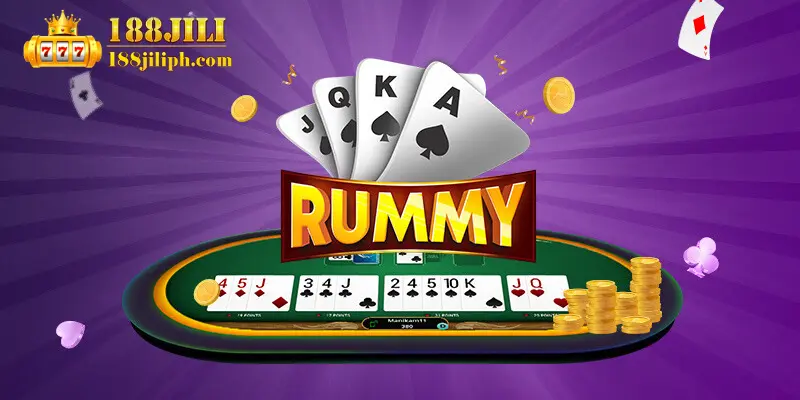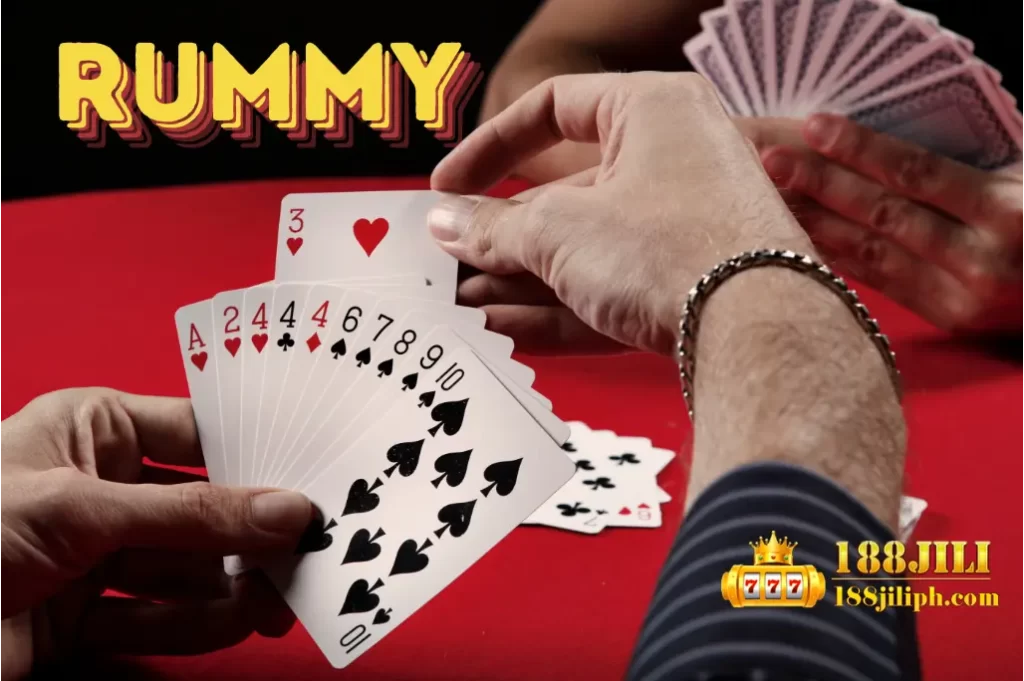Rummy is a classic card game that has captivated players for generations. With its simple rules & engaging gameplay, it offers both casual fun and competitive excitement. The objective is straightforward: be the first to eliminate all your cards by forming melds—sets or runs. Whether you’re playing with family, friends, or even online opponents, Rummy provides an excellent way to bond and challenge your strategic thinking. In this blog post, we will dig into the rich history of Rummy, explore various types of Rummy games, share expert strategies for winning, discuss the mental and social benefits of playing, and examine its presence in popular culture.

The History and Evolution of Rummy
Origins of Rummy
The origins of Rummy can be traced back to the early 19th century, with some historians suggesting that it evolved from the Chinese game of “Kong,” which involved matching pairs of tiles. However, the most widely acknowledged theory is that Rummy originated in Mexico in the late 1800s as a variant of the game known as “Concentration.” This game spread to the United States, undergoing several transformations and creating various rummy variants.
The Spread of Rummy
As Rummy Game gained popularity in the United States, it began to spread globally. By the early 20th century, different versions of the game emerged in various countries. For instance, the game “Gin Rummy” was developed in the 1910s and quickly became popular among American players. Meanwhile, a unique version called “188jili Rummy” gained traction in India, incorporating local rules and variations.
Modern Variants of Rummy
Today, there are countless variations of Rummy played worldwide. Some of the most popular include:
- Gin Rummy: A two-player version emphasising skill and strategy, where players aim to form melds and minimise deadwood.
- 188jili Rummy: Typically played with two decks of cards and involves forming sets and sequences, often requiring players to have at least one pure sequence to declare.
- Canasta: A variant that incorporates wild cards and requires players to form melds of seven cards.
- Kalooki: A fast-paced version that allows players to lay off cards on existing melds, similar to traditional RummyGame but with additional complexities.
Each of these variants has its own set of rules and strategies, making Rummy a versatile and ever-evolving game.
Types of Rummy Games: A Completeness Guide
Traditional Rummy
Traditional Rummy, or Basic Rummy, is the foundation upon which many other variants are built. Its straightforward rules characterise it and focus on forming melds. Players draw cards from the deck or the discard pile and attempt to create sets or runs. The simplicity of Traditional RummyGame makes it an ideal starting point for new players.
Gin Rummy
Gin Rummy is a two-player variant that emphasises skill and strategy. Players aim to form melds while minimising the value of unmelted cards, known as deadwood. The game is recreated over multiple rounds, and players can knock when they believe they have a lower total deadwood count than their opponent. This adds an extra coating of strategy, as players must decide when to go for the win and when to hold back.
188jili Rummy
188jili Rummy is a famous variant in India and is typically recreated with two decks of cards. The objective is to form at least two sequences, one of which must be pure (without wild cards). Participants can lay off cards on existing melds, allowing for more dynamic gameplay. Using jokers as wild cards adds an exciting twist, as players can utilise them to complete their melds.
Canasta
Canasta is a variant that incorporates wild cards and requires players to form melds of seven cards. The game is usually played with four players in partnerships, adding a collaborative element. Players score points based on the melds they create, and the first team to reach a predetermined score wins. Including wild cards and the requirement for larger melds make Canasta a more complex and strategic game.
Rummy Strategies for Winning: Expert Tips and Tricks

Understanding the Basics
Before plunging into advanced strategies, it’s essential to understand the basic mechanics of RummyGame. Familiarise yourself with the rules of the specific variant you are playing, as each may have unique nuances. Knowing how to form melds, lay off cards, and manage your hand effectively is crucial for success.
Observation and Memory
One of the critical strategies in Rummy is to pay close attention to the cards being drawn and discarded by your opponents. Keeping track of which cards they pick up can deliver valuable insights into their potential melds. Also, developing a good memory for the cards that have already been played can help you make informed decisions about your gameplay.
Strategic Discarding
When discarding cards, consider the potential impact on your opponents. Avoid discarding cards that could help them complete their melds. Instead, discard cards that are less likely to be helpful to others. This strategic approach can hinder your opponents’ progress while advancing your own.
Timing Your Melds
Knowing when to lay down your melds is critical to Rummy’s strategy. While it may be tempting to lay down melds as soon as possible, sometimes holding onto them for a few turns can give you a strategic advantage. Keeping your melds hidden can prevent opponents from gaining insight into your hand and potentially thwarting their plans.
Rummy: A Game of Skill, Strategy, and Chance
The Role of Skill in Rummy
While chance plays a role in Rummy, skill is the primary determinant of success. Players who deeply understand the game’s mechanics, strategies, and psychology are likelier to excel. Mastering the art of forming melds, managing your hand, and reading your opponents can significantly enhance your chances of winning.
The Importance of Strategy
Strategy is at the heart of Rummy gameplay. Players must constantly evaluate their options, considering not only their own hands but also the potential moves of their opponents. Developing a flexible strategy that adapts to changing circumstances is crucial for success. Whether you play aggressively or conservatively, having a well-thought-out plan can make all the difference.
Chance and Luck Factors
Despite emphasising skill and strategy, luck still plays a role in RummyGame. The cards you draw and the ones available in the discard pile can significantly influence your gameplay. However, skilled players know how to leverage luck to their advantage. They remain adaptable and make the most of the opportunities, turning potential disadvantages into advantages.
Balancing Skill and Luck
Ultimately, Rummy is a game that beautifully balances skill and luck. While players cannot control the cards they receive, they can control how they respond to those cards. Embracing both game elements allows players to enjoy the thrill of uncertainty while honing their skills for future matches.
The Benefits of Playing Rummy: Mental and Social Advantages
Cognitive Benefits
Playing Rummy offers numerous cognitive benefits that extend beyond mere entertainment. The game requires participants to think critically, problem-solve, and plan strategically. As players analyse their hands and make decisions based on available information, they exercise their cognitive abilities, enhancing their mental agility and sharpness.
Social Interaction
Rummy is inherently a social game, often played in groups or pairs. Engaging in friendly competition fosters social connections and strengthens relationships. Whether playing with family, friends, or new acquaintances, RummyGame creates opportunities for bonding and shared experiences. The laughter, banter, and camaraderie during gameplay create a positive social atmosphere.
Stress Relief
In today’s fast-paced world, finding moments of relaxation and enjoyment is essential for mental well-being. Playing Rummy can serve as a welcome escape from daily stressors. The game’s engaging nature allows players to immerse themselves in the moment, temporarily setting aside worries and anxieties. Combining strategic thinking and social interaction can lead to a sense of fulfilment and joy.
Lifelong Learning
Rummy is a game that encourages continuous learning and improvement. As players gain experience, they discover new strategies, refine their skills, and adapt to different playing styles. This commitment to lifelong education enhances gameplay and fosters personal growth and development.
Rummy in Popular Culture: From Movies to Literature
Rummy in Film
Rummy’s popularity has transcended the realm of card games, finding its way into popular culture through film and television. Numerous movies feature scenes of characters engaged in intense Rummy matches, showcasing the game’s role in building tension, camaraderie, and conflict. These portrayals often highlight the strategic nature of RummyGame, emphasising the psychological battles that unfold between players.
Rummy in Literature
Literature has also embraced Rummy as a symbol of strategy and competition. Authors have woven the game into their narratives, using it as a metaphor for life’s challenges and the importance of decision-making. RummyGame is a backdrop for character development, illustrating themes of rivalry, friendship, and the pursuit of victory.
Online Presence of Rummy
With the rise of technology, Rummy has found a new home in the digital realm. Online platforms and mobile apps allow participants to enjoy Rummy Game anytime, anywhere. This accessibility has expanded the game’s reach, attracting new players and fostering a global community of Rummy enthusiasts. Online tournaments and competitions further elevate the game’s status, showcasing the skills of top players.
Cultural Significance
Rummy’s cultural significance extends beyond mere entertainment. The game is associated with many societies’ family gatherings, celebrations, and social events. It bridges between years, bringing people together to share stories, laughter, and friendly competition. The enduring appeal of Rummy speaks to its ability to create lasting memories and connections.
Conclusion
Rummy is better than just a card game; it is a timeless tradition that has evolved over the years, captivating players worldwide. Its rich history, diverse variants, and strategic depth make it a beloved pastime for individuals of all ages. Whether seeking cognitive challenges, social interactions, or a fun way to unwind, RummyGame offers many benefits.
As you venture on your Rummy journey, remember to embrace the game’s skill and luck aspects. Develop your strategies, observe your opponents, and enjoy the thrill of competition. With each hand dealt, you’ll uncover new opportunities for growth and connection.
So gather your friends & family, shuffle the deck, & let the games begin! Rummy awaits, ready to provide endless hours of enjoyment and camaraderie.
